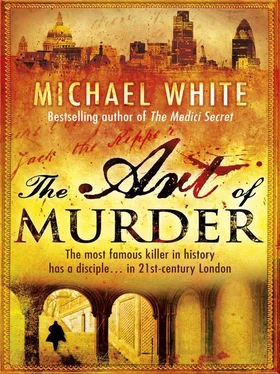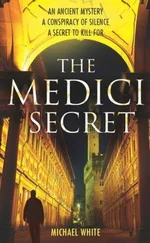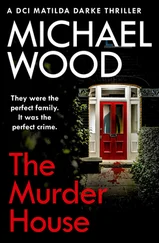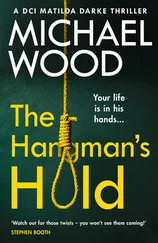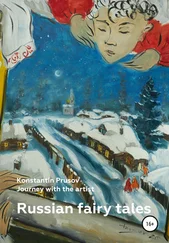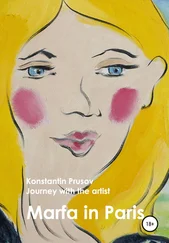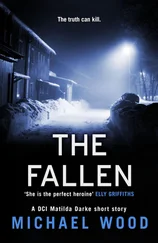Michael White - The Art of Murder
Здесь есть возможность читать онлайн «Michael White - The Art of Murder» весь текст электронной книги совершенно бесплатно (целиком полную версию без сокращений). В некоторых случаях можно слушать аудио, скачать через торрент в формате fb2 и присутствует краткое содержание. Жанр: Триллер, на английском языке. Описание произведения, (предисловие) а так же отзывы посетителей доступны на портале библиотеки ЛибКат.
- Название:The Art of Murder
- Автор:
- Жанр:
- Год:неизвестен
- ISBN:нет данных
- Рейтинг книги:3 / 5. Голосов: 1
-
Избранное:Добавить в избранное
- Отзывы:
-
Ваша оценка:
- 60
- 1
- 2
- 3
- 4
- 5
The Art of Murder: краткое содержание, описание и аннотация
Предлагаем к чтению аннотацию, описание, краткое содержание или предисловие (зависит от того, что написал сам автор книги «The Art of Murder»). Если вы не нашли необходимую информацию о книге — напишите в комментариях, мы постараемся отыскать её.
The Art of Murder — читать онлайн бесплатно полную книгу (весь текст) целиком
Ниже представлен текст книги, разбитый по страницам. Система сохранения места последней прочитанной страницы, позволяет с удобством читать онлайн бесплатно книгу «The Art of Murder», без необходимости каждый раз заново искать на чём Вы остановились. Поставьте закладку, и сможете в любой момент перейти на страницу, на которой закончили чтение.
Интервал:
Закладка:
My new lodgings were on Wentworth Street. I rented a single room above a corn-chandler’s shop. The shopkeeper, a Mr Girthwright, owned the building. His shop was crammed full of bird cages, broody hens, baskets of eggs, seed and corn. It was more farm than shop, and the stink of bird excrement and rotting straw seeped through the ceiling into the rooms above.
The room itself was wonderfully squalid. Just what I was looking for. I needed to soak up the atmosphere, melt into the crowd, become part of the local landscape. I was priming myself, making ready for my project, my grand work, the one that would make my name immortal.
It was a mean room, a low ceiling surmounting brown walls that had been papered last when Victoria was a young woman. The floor was of bare boards. There was a narrow bed, a rusted gas mantle, no form of heating. A single ornament hung on the wall above the bed: a crucifix. But, as crude and unprepossessing a place as this was, I knew from my studies of the area that this house was one of the better lodgings to be found here. It was not uncommon for four families to share a place this size, and the exorbitant price demanded for it — three shillings a week — was justified if I were to have my privacy. That was the last thing I could afford to sacrifice. I dropped my bag to the floor and sat on the edge of the bed, looking around my new home, feeling immensely pleased with myself.
By the time I left the building, the sky had turned russet, casting a striking light across the buildings and the still-wet streets. The rain had passed and the stink of the place was reasserting itself. It was a smell I had never before experienced, a blend of so many odours: soot, tar, rotten food and human waste. There was also a salty tang to the air, the southerly breeze wafting into the narrow streets the stench of the river.
I had not visited a place even remotely like this, and it thrilled me inordinately. I knew all the stories about this part of London. How the poor had been expelled from the Rookeries around St Giles to the west of the City, their old slums razed. The countless, faceless hordes of bedraggled humanity had swept eastward just a few miles and turned the East End of London into the cesspit it now was. It was, dear lady, Hell on Earth, a place Londoners refer to as ‘the Stew’, and I loved it immediately.
How do I begin to express its unique atmosphere, especially to one so well bred and closeted as your good self? I’ve tried to convey the smell, but really this was just one element in the overall experience. Indeed, one could almost describe the process of walking out of my lodgings and on to the street as something of an overloading of the senses, for everything about it piqued and challenged my perceptions.
Immediately outside the door to my lodgings, a pieman had set up. He had placed a small box-shaped container on short metal legs on the cobblestones. On top of this lay a row of meat pies kept warm by a small fire burning inside the box. The pieman wore a short jacket and a dirty kerchief. His top hat was pushed back at a rakish angle and he wore a brown-smeared apron about his waist. A woman stood beside him. She looked ill, with pinched cheeks and dark hollows beneath her eyes. Immediately in front of the pie stand stood a young boy in a cloth cap, calling for customers. He was crouching on one knee and held a pair of coins in his hand which he tossed into the air. ‘Toss and buy,’ he called, inviting customers to have a turn at guessing which way the coins fell while they waited for their pie.
It was the time of the evening when the streets were beginning to fill. The few residents who had jobs were returning from their labours, and others, the prostitutes or ‘brides’ as I knew they were called by the locals, were just about to start their evening’s work.
The workmen looked particularly bedraggled. I saw a young man, his face as pale as death, hair already thinning, eyes hollow. He almost knocked my shoulder as he swayed, half-drunk, along the narrow pavement. I caught the stench of him, fish and brine, and I knew that he was a waterman, one of those who pulled corpses from the Thames in the hope of finding something valuable, be it a farthing sewn into a seam or a gold tooth pulled from a corpse.
Crossing a lane that led on to Whitechapel Road, a group of four exhausted figures passed by. These were paupers on their way from the labour yard where those without any gainful employment spent twelve hours a day breaking stones and rocks for a few pennies. Then a more colourful sight: a ‘budgerigar man’, a slight fellow in an off-white top hat standing behind a hastily erected table covered with a frayed cloth. Four budgerigars perched along his outstretched arm. On the table top lay four cards. ‘Guess the card and win yourself a night out!’ the man called as I approached. I ignored him, but watched fascinated as a young couple stepped up.
The girl was giggling as her male friend offered the budgerigar man a farthing. ‘Which one would the lady like to choose?’ the man behind the table quizzed, ogling her. ‘Could be your lucky night, my darlin’.’ The girl tittered stupidly and nuzzled up to her beau. The young man chose for her, second from the left. The budgerigar man pocketed the money and lowered his arm to allow one of the birds to hop on to the table. The budgerigar paraded importantly up and down next to the cards, then stopped and pecked at one of them: the second from the left. The woman squealed and threw her hands to her mouth. I walked on, wondering how many times the budgerigar man would let the couple win before he turned the tables on them.
Now, dear lady, you must not think me a completely idle fellow because this little exploratory trip was serving a definite purpose. I was heading somewhere and I knew exactly where it was. My destination was the Pavilion, or the ‘Pav’ as the locals preferred, a music hall of the most wretchedly sordid kind, but an entirely suitable place of entertainment for the residents of Hell.
How do I begin to conjure up a clear portrayal of the Pav? It would be much easier for me to paint the place. But I will try. I want you to have every detail.
The front of the building gave no clue as to what went on inside. It looked like a simple, decent theatre. But beyond the doors, the place was a haven for the lower orders. Great rough wooden tables ran the entire length of the main hall, and upon either side of these stretched benches. By nine each evening every single space on the benches was taken, beer mugs were constantly refilled with cheap, watered-down ale, and the venue burst into life.
As you may gather, I went to the Pav on many occasions. Indeed I purchased a box there for no less than five guineas. I was captivated by the place that very first night of my new life in London. Before I had slept a single night in the Stew, I had made myself at home at the New Royal Pavilion Theatre, to give it its proper name. What was it that I loved so much there? I hear you ask. I think it was the sense of barely masked hopelessness, the ludicrous lengths to which people go in order to forget temporarily the vileness of life. Thomas Hobbes once wrote: ‘Life is solitary, poor, nasty, brutish and short’, but any nascent realisation that the average person may have of this may be dispelled with enough beer down their throat; enough rowdy music, sly innuendo and double-entendre; enough time with a whore on their lap. Or, for the richer desperadoes, enough opium in their blood. But it’s all a ridiculous falsehood, all a pretence, and it amused me enormously to watch the faces of the cattle at the trough, trying to make all that is bad in the world go away. Only one thing makes that disappear, and it is not something you find in a music hall. At least, not directly. At least, not until Yours Truly arrived in the neighbourhood.
Читать дальшеИнтервал:
Закладка:
Похожие книги на «The Art of Murder»
Представляем Вашему вниманию похожие книги на «The Art of Murder» списком для выбора. Мы отобрали схожую по названию и смыслу литературу в надежде предоставить читателям больше вариантов отыскать новые, интересные, ещё непрочитанные произведения.
Обсуждение, отзывы о книге «The Art of Murder» и просто собственные мнения читателей. Оставьте ваши комментарии, напишите, что Вы думаете о произведении, его смысле или главных героях. Укажите что конкретно понравилось, а что нет, и почему Вы так считаете.
